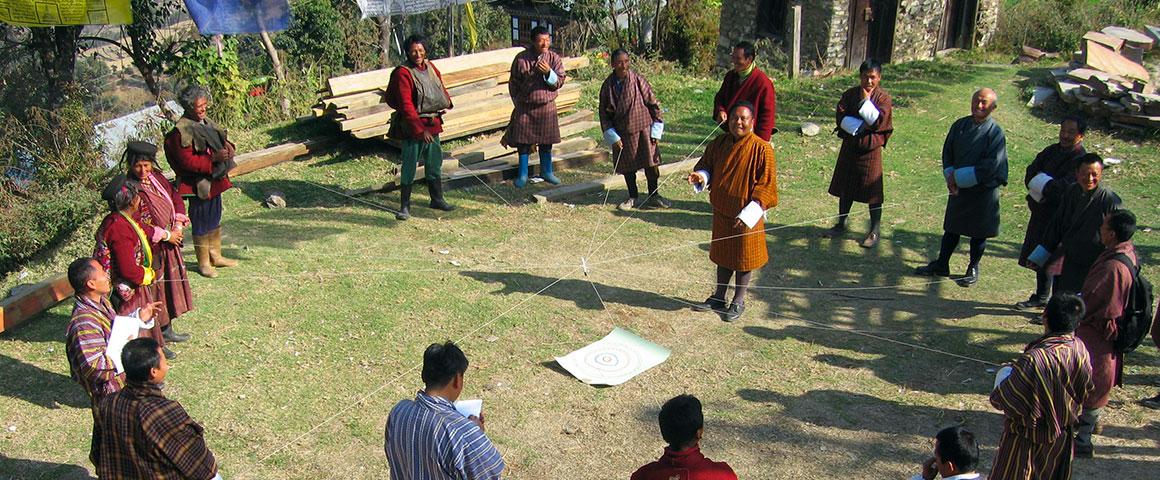- Home
- About us
- Research units
- SENS
Savoirs, Environnement et Sociétés - UMR SENS

Game session with pastoralists about a conflict over access to a pasture, Bhutan © C. Le Page, CIRAD
UMR SENS has three main objectives
- To generate knowledge of the mechanisms that underlie interactions and tensions within the society-environment nexus.
- To support social and institutional innovations aimed at influencing the pathways taken by ecological and social systems, in the long term and on various scales.
- To foster debate on our role as scientists in view of the complexity of the phenomena under study, their ethical and political aspects, and the need to work together to build skills and practices.
This new joint research unit was created in January 2021 with the merger of three other units
It associates CIRAD researchers from its Management of Renewable Resources and Environment research unit (GREEN), IRD researchers and teacher-resarchers from ’AgroParisTech, Montpellier Sup Agro and IIAM originally working for the Governance, Risk, Environment, Development joint research unit (GRED), and teacher-researchers from UPVM working for the Centre d’Études et de Recherches Comparatives en Ethnologie (CERCE) at the Laboratoire d’études et de recherches en sociologie et en ethnologie de Montpellier (LERSEM), now the Department of Ethnology (teaching team).
With more than 50 permanent members – researchers, teacher-researchers, engineers, technicans and administrative staff – and some 40 PhD students, our team is characterized by its interdisciplinarity, both within the social sciences (anthropology, economics, geography, sociology, law, political science) and between the social sciences, life sciences and environmental sciences (agronomy and ecology) and science and technology (modelling and IT).
Our research centres on four topics
- Dynamics of practices, affiliations and landscapes
- Ethics and environmental justice: issues and practices
- Nature and resource governance
- Construction and use of environmental knowledge
























